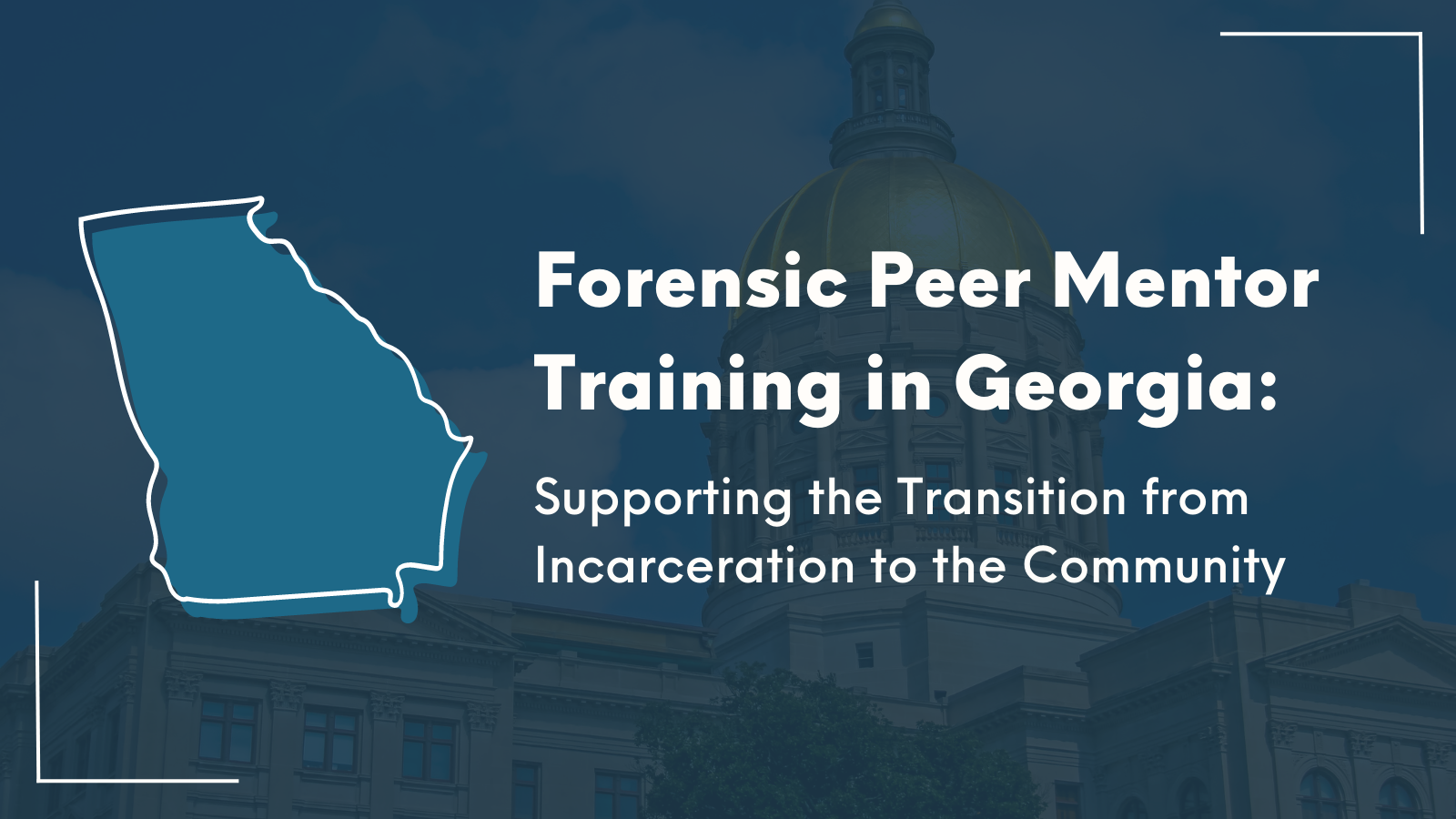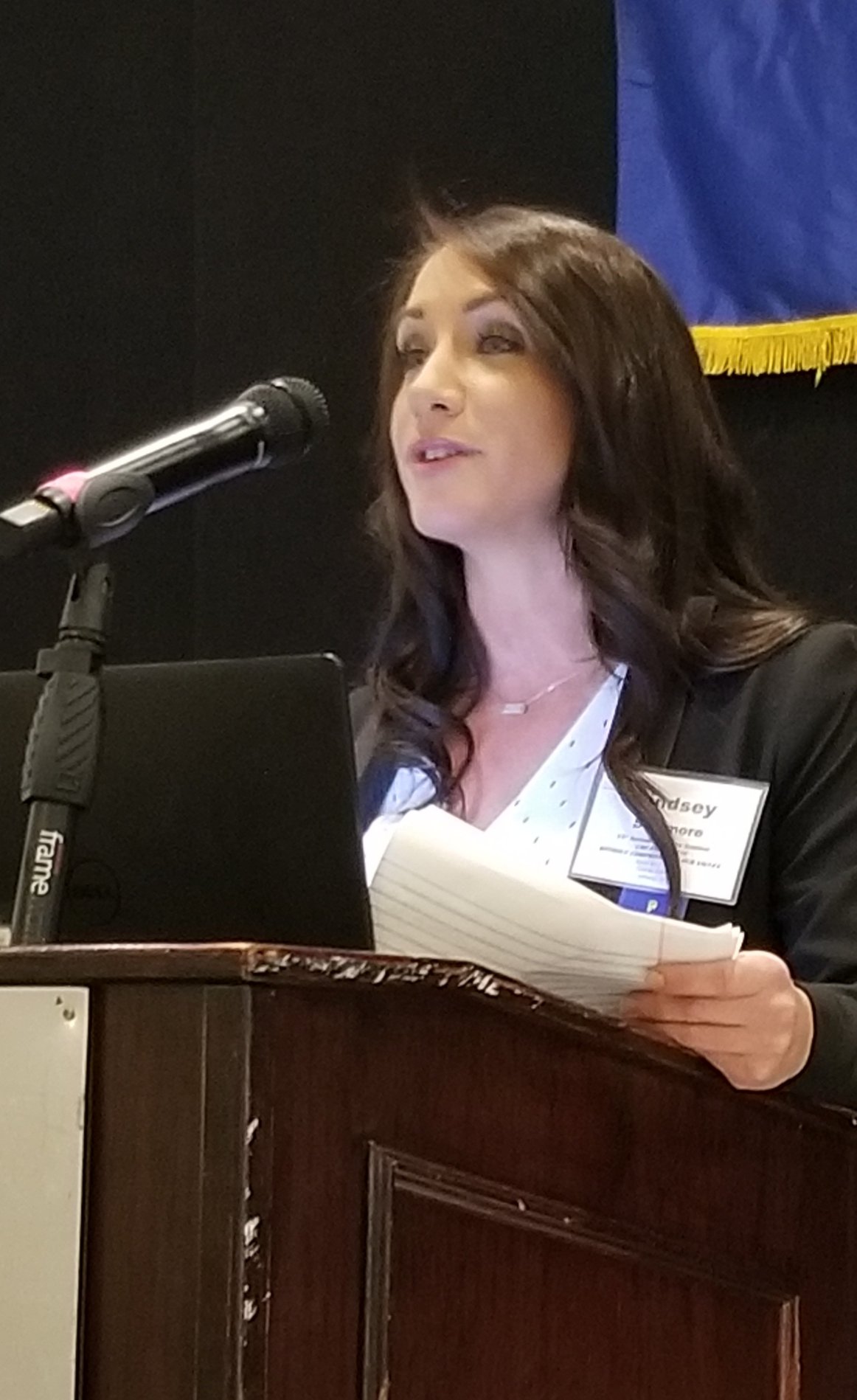Certified peer specialists, peer mentors, and other peer support workers offer both lived experience and professional knowledge of systems and supports. They inspire hope, dispel myths, and help the people they serve set goals, develop strategies for self-empowerment, and move toward the lives they want to live.
Forensic peer support is a special type of peer work for people with mental health and substance use disorders involved with the justice system. Forensic peer mentors (FPMs) help individuals navigate the transition from incarceration to the community. The Georgia Mental Health Consumer Network’s (GMHCN) Ready4Reentry Forensic Peer Mentor Training Program equips peer specialists with the specific skills needed to support individuals with justice involvement.
Dedicated Peer Support and Specialized Training
GMHCN has been promoting recovery from mental and substance use disorders for over 30 years. GMHCN, which offers an array of training services to promote recovery and advocate for mental health, established the Forensic Peer Mentoring Project in 2015. The Forensic Peer Mentoring Project provides support, linkages, and care coordination to promote the successful community reintegration of adults with behavioral health diagnoses returning to the community following incarceration.
FORENSIC PEER MENTOR TRAINING REQUIREMENTS
Georgia Forensic Peer Mentors:
- Have first-hand, personal, lived experience in jail or prison
- Are already Georgia-certified peer specialists (CPS) in addictive disease (CPS-AD) or mental health (CPS-MH)
- Are in recovery from mental or substance use disorders (CPS-AD requires 2 years of recovery from SUD; CPS-MH requires 1 year of “wellness”)
- Complete the Ready4Reentry Forensic Peer Mentor Training Program training
In 2019, with funding from a Substance Abuse and Mental Health Services Administration’s statewide consumer network grant, GMHCN began offering a specialized Forensic Peer Mentoring Training Program for any Georgia-certified peer support specialist interested in working with a forensic population. They conducted a series of listening sessions across the state to understand the needs and gaps of individuals reentering the community from incarceration. They built the training program to address these issues. The GMHCN training program is recognized by the Georgia Department of Behavioral Health and Developmental Disabilities and is the only such training in the state.
The Forensic Peer Mentoring training program is 40 hours long over 5 days. Learners attend sessions with the State Board of Pardons and Paroles, the Department of Corrections, and the Department of Community Supervision. Additionally, the training covers correctional cultural competence. Because FPMs have been in jail or prison, trainers help them prepare to return to that world and readjust to its culture and norms, this time as a professional and not a resident. “Forensic Peer Mentors really ‘stand in the middle,’” says Lindsey Sizemore, CPS-MH, CPS-AD, forensic peer mentoring training project director, and an FPM herself. “We collaborate and build allies within the correctional setting and use these relationships and this perspective to advocate for our clients.” This part of the training focuses on empowerment, self-care, and preparation for peers who must revisit a painful part of their past to help people move forward.
Systemwide Service
FPMs work with individuals who are within 18 months of their release from incarceration or court-ordered psychiatric hospitalization. FPMs who complete GMHCN’s program work in variety of settings across the state. These settings include crisis centers, mobile crisis teams, inpatient psychiatric settings, treatment programs, mental health and accountability courts, day reporting centers (e.g., post-release community corrections), community service boards, and jails and prisons. GMHCN also employs 15 FPMs in its own state-funded program.
“Our FPMs have the incredibly valuable experience of knowing what it is like to move out of incarceration,” says Sizemore. “We use our own stories to empower individuals to create a new path, reintroducing ‘choice’ in their lives and how they can use that to improve their lives.”
As of April 2023, 14 training sessions had been completed, with 240 new FPMs trained. “Each FPM has the capacity to work with about 20 individuals at a time,” says Sizemore, “which means we have been able to bring our peer services to hundreds of justice-involved individuals in Georgia over the past few years.” In the first 3 months of 2023 alone, more than 800 individuals were served by FPMs in prisons, jails, and mental health centers.
FPMs serve as role models and promote recovery and wellness for individuals transitioning back into the community. They also often introduce the idea of becoming a peer specialist to the people they work with. “It wasn’t until a forensic peer knocked on my door on the outside that I truly appreciated that I had something to contribute, and I could help change a system,” says Sizemore. “Having a way to take something so dark and awful and use it for good and to help people start believing in themselves has made all the difference in my life.”
Like what you’ve read? Sign up to receive the monthly GAINS eNews!



